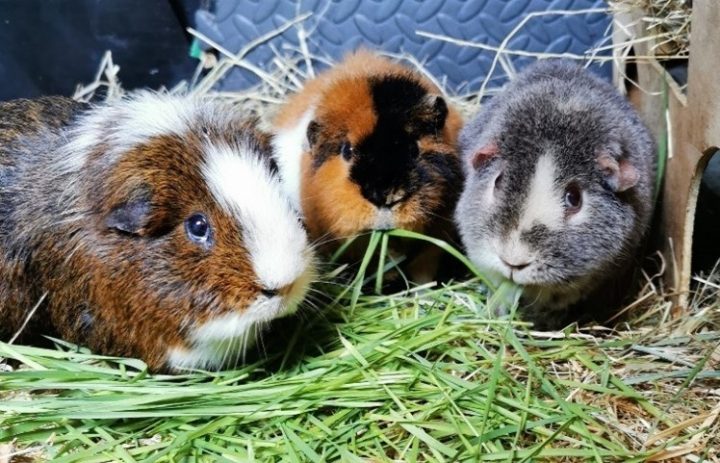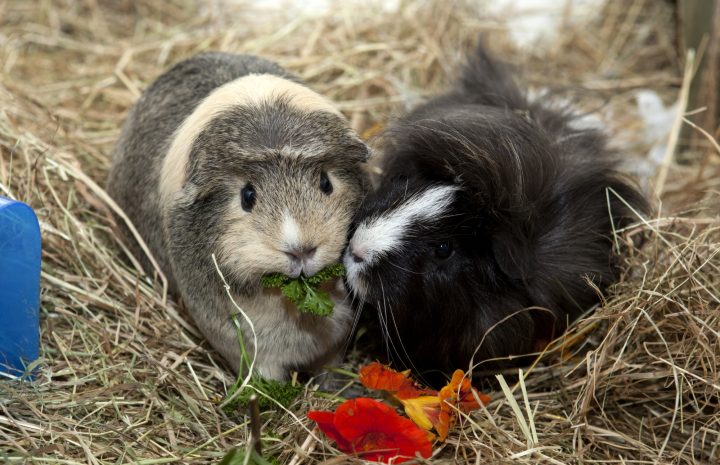Promote natural behaviour and provide appropriate companionship
Did you know guinea pigs are very active animals? They can be awake for up to 20 hours a day!
Guinea pigs are sociable and are the happiest in pairs or groups. To prevent unwanted litters, ensure you neuter your male guinea pigs first.
As guinea pigs are sensitive creatures, they can get fearful of loud noises, sudden movements or getting picked up. To help them feel secure in their new home, they require enrichment such as hides, bridges, tunnels, feeding toys and big piles of hay for exploring and hiding.
Guinea pigs are not suited to living with other small animals such as rabbits.

Promote natural behaviour and provide appropriate companionship
Did you know guinea pigs are very active animals? They can be awake for up to 20 hours a day!
Guinea pigs are sociable and are the happiest in pairs or groups. To prevent unwanted litters, ensure you neuter your male guinea pigs first.
As guinea pigs are sensitive creatures, they can get fearful of loud noises, sudden movements or getting picked up. To help them feel secure in their new home, they require enrichment such as hides, bridges, tunnels, feeding toys and big piles of hay for exploring and hiding.
Guinea pigs are not suited to living with other small animals such as rabbits.
